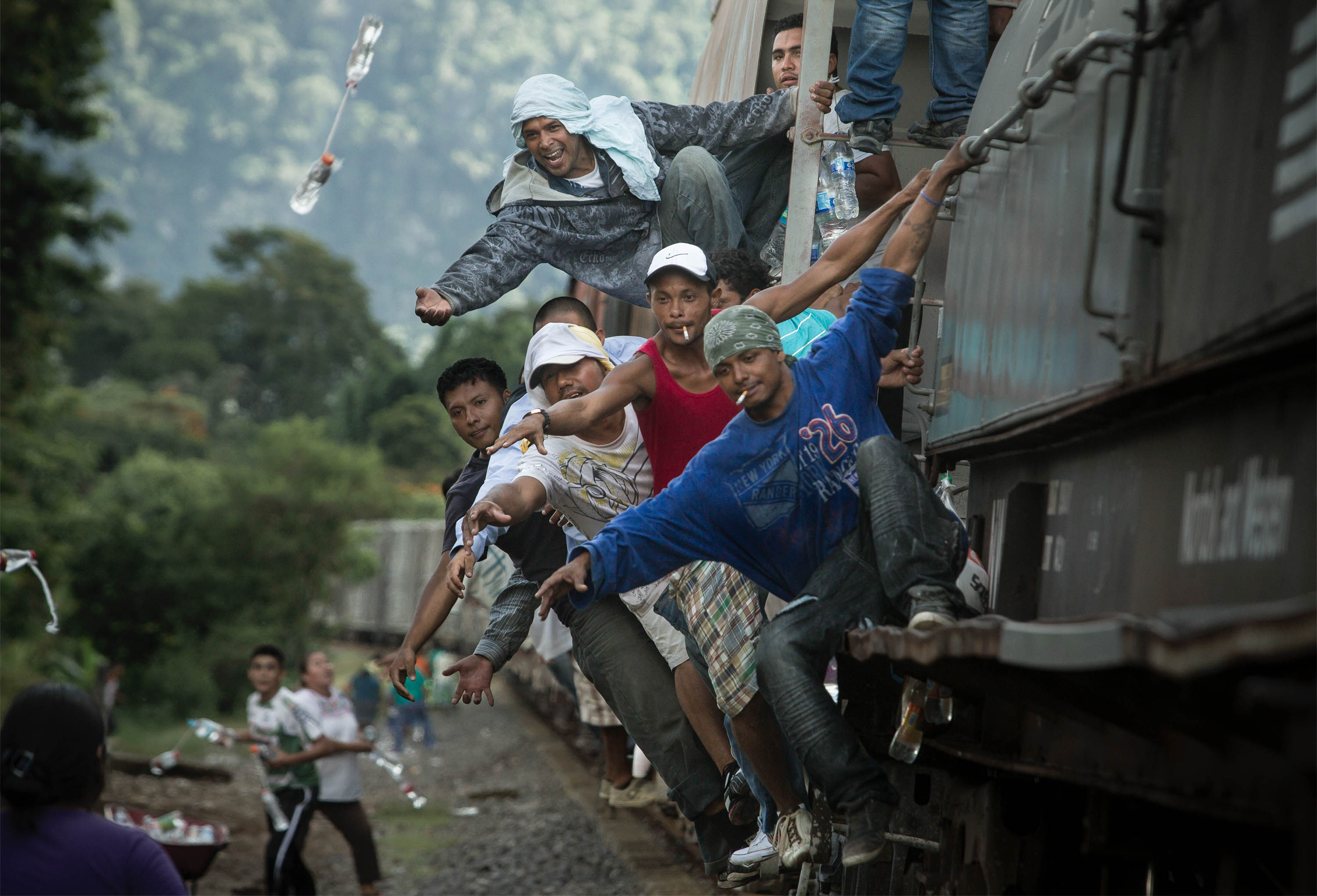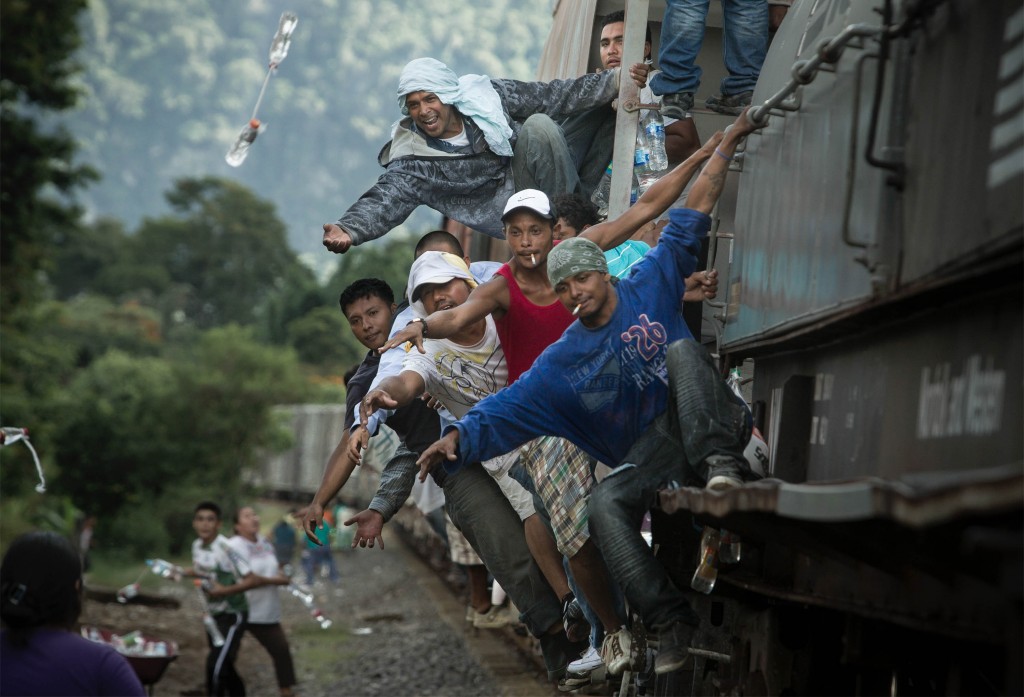On January 25, Mexican President Enrique Peña Nieto took to Twitter to denounce the two executive immigration orders on immigration Donald Trump signed so soon after becoming president. “Mexico doesn’t believe in walls,” he said. But what he meant as a defiant message to the Trump Administration read as insincere to those who know of the mistreatment of Central American throughout the Latin American country. After fleeing gang violence in the Northern Triangle, they arrive in Mexico, where they’re subjected to more violence. On Wednesday, Diego Luna used his platform to bring attention to this issue. “I’m so ashamed of my government’s hypocrisy,” Luna said. “Many of these families, many of these children are treated like criminals in this country.”
The crisis that’s taking place in his own country has pushed him to partner with the UN Refugee Agency (UNHCR) for its Niñez que huye (Children on the Run) campaign. With this newly launched initiative, UNHCR seeks to raise $18 million to provide a safe haven for Central American refugees, most of whom are children. “An ever-greater number of children are fleeing extortion, forced recruitment, exploitation and sexual violence across the region,” said Renata Dubini, UNHCR’s Director for the Americas in a statement. “More funds are urgently needed to provide them and their families with a place of safety.”
But, as Luna argues, Mexicans must also play a role in this campaign: they must tackle their own xenophobia and put pressure on their government. With about 180,000 Central Americans fleeing their homes in 2016, the UNHCR estimates a tenfold rise in the last five years. With Central American gangs’ continued stranglehold on the area, it may drive more Honduras, Guatemalans, and Salvadorans to leave. And as the United States remains unwelcoming to this group of immigrants, many are setting their sights on Mexico. According to the Los Angeles Times, 3,424 Central Americans filed for asylum application in 2015. Human rights advocates believe that number will continue rising.
Honduras-born Javier Eduardo Ferrera, 23, was deported from North Carolina in September 2016. Six days after arriving in Tegucigalpa, he began to make his way out of the country. By December, he reached Mexico. “Let’s wait and see whether Trump accomplishes his goals,” he told the LA Times. “If I can’t be there, I’d rather be here.”
It’s unclear how many Central Americans live in Mexico. This is partly because some of them have received counterfeit Mexican documents. For Central Americans, blending in is key to survival.
When Lulu Sánchez, her pregnant 15-year-old daughter, 8-year-old son and two adult men left their home in La Ceiba, they were kidnapped by men who claimed to belong to the Zetas. They raped the two women, punched the boy in the face, and took their phones, so they could call their relatives demanding ransoms in exchange for their safety. The cartel members released the two men, who went directly to the police. However, according to The Guardian, the police did nothing to find the kidnapped family. After a family member paid their ransom, they sought refuge at La72, a migrant shelter. As they dealt with the trauma, one of the kidnappers came to look for them at this safe space.
Their case isn’t unique. As vulnerable Central Americans try to reach the United States, cartel members have profited by kidnapping them. A study conducted by Mexico’s National Commission of Human Rights found that between 2008 and 2009, 1,600 migrants were kidnapped.
The Mexican and US governments are complicit in the violence against Central Americans in more ways than one. Last year, Mexico deported more than 140,000 Salvadorans, Guatemalans, and Hondurans – or twice as much as the US deported. Some of their ramped up deportation efforts has led to dangerous profiling against their own people. A few years ago, immigration agents questioned three indigenous siblings from Chiapas, believing they were Central American. Because they spoke the Mayan language Tzetzal, officials were able to coerce Alberto into claiming he was from Guatemala. The Institute for Women in Migration (IMUMI) and other activist groups pushed for the release of the siblings, who now refuse to leave Chiapas.
Amidst all of this, Luna says it’s impossible to ignore what’s happening in Mexico. “It’s easy to talk about the Syrian refugee crisis, but it costs us to recognize what’s happening here,” Luna said at an event announcing the Children on the Run campaign. “Today Mexico … is no longer just a place of transit, it’s become the place that many people want to reach.”
Check out his statements below, and donate here if you want to help the UNHCR reach its fundraising goals.




